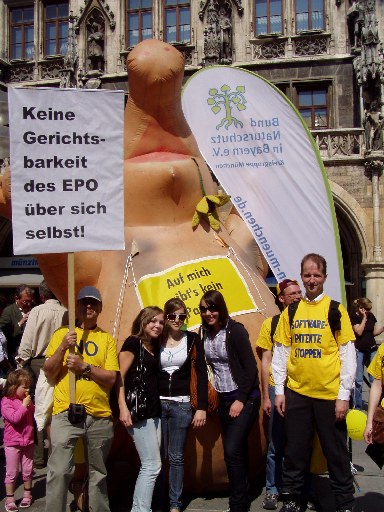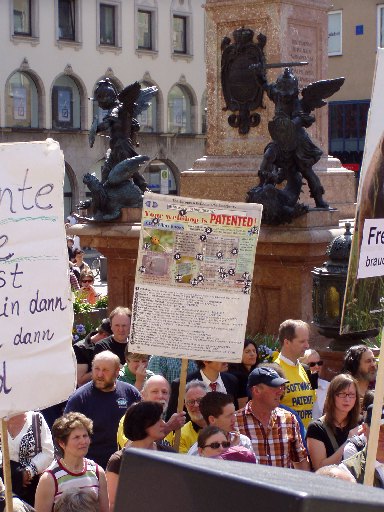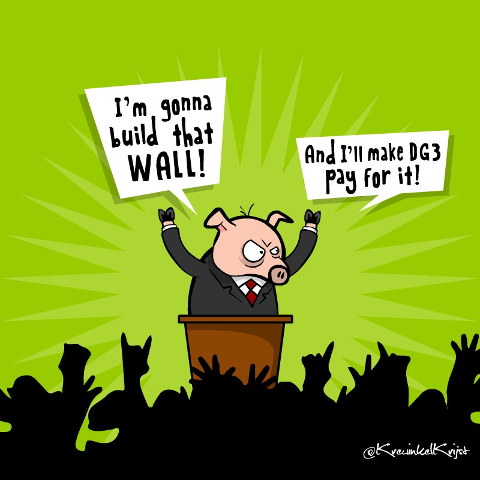


 Full size (larger)
Full size (larger)
TWO years ago we published leaked evidence that the EPO was discriminating against SMEs. Since then, in order to limit the damage to the EPO's reputation, the EPO changed PACE somewhat (changing history as much as possible, only after it had been caught).
"The EPO is fast becoming a rubber-stamping operation which in no way offers value for money (to applicants)."This month and last month the EPO posted every single day (except during weekends) something with the hashtag #IPforSMEs. Here is today's example, muttering something about "invention" and "business case" (marketing/management talk).
In reality, however, the EPO serves multinational corporations such as Monsanto/Bayer (US/Germany) and helps these corporations shield themselves from the masses, including SMEs. Moreover, the EPO is an enemy of farmers (i.e. food), which is why farmers often protest against the EPO (we covered some protests about a decade ago). Here is an article published by British media earlier today to warn about "patenting of plants". Here are some excerpts:
Thor Kofoed, chairman of C and C's Seed Working Party, stressed that th “Breeders in Europe currently make around 2000 varieties a year which shows how well the system works. Without this system, 90% of the varieties would disappear in the next 10 years to the economic benefit of a few multinationals. Farmers do not dare to take that chance and we can never accept a movement in that direction," he concluded. e EPO was ignoring farmers who rely and use these products: “The new system favoured by EPO would be a disaster for farmers and small breeders. Small seed breeders would disappear which would cut the number of plant varieties on the market considerably. Only the big breeders – the multinationals – who can afford to make patent applications would survive."
C and C accused the EPO of already authorizing patents on naturally occurring products like tomatoes and broccoli, and ignoring the latest Commission advice which recommends not using patents on plants whose DNA belongs to nature.
[...]
“Breeders in Europe currently make around 2000 varieties a year which shows how well the system works. Without this system, 90% of the varieties would disappear in the next 10 years to the economic benefit of a few multinationals. Farmers do not dare to take that chance and we can never accept a movement in that direction," he concluded.
Reflecting recent case law, the revision replaces and expands on its comments concerning user interfaces. The Guidelines now state that user interfaces comprise “features of presenting information and receiving input in response as part of human-computer interaction.” Features that define user input are more likely to have a technical character (and therefore be patentable subject matter) than those solely concerning data output and display, because input requires compatibility with the predetermined protocol of a machine, whereas output may be largely dictated by the subjective preferences of a user.
This change reflects recent case law about what can be considered patentable subject matter. When drafting claims involving a UI, we will be carefully considering input means and structures to help ensure allowance.